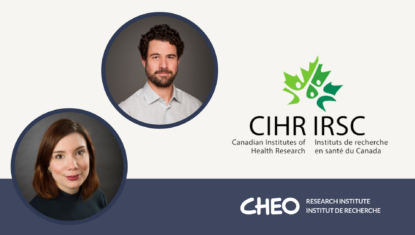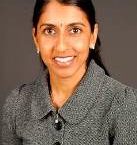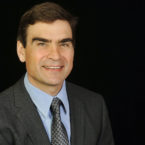The overall purpose of the Concussion Research Project (CRP) clinic is to optimize the assessment, management and follow-up for children who remain symptomatic three months following a sport-related head injury. Optimal care of patients with prolonged post-concussion symptoms includes a thorough medical evaluation and referrals to the appropriate specialties, including neurology, neurosurgery, the pain service and pediatrics. The focus is on providing a multidisciplinary approach to care that includes a collaborative management plan and appropriate follow-up. The knowledge gained from this research project will guide the development of preventive measures in children found to be at high risk of developing post- concussion syndrome.
Check out the world’s first comprehensive pediatric concussion guidelines – a nationwide research project led by Dr. Roger Zemek at CHEO.
Related News
-

29/05/2025
Ontario Researchers to Pioneer New Concussion Diagnostic Tool in Canada
-

04/02/2025
First-time CIHR project grant recipients will advance innovative pediatric cancer and concussion research using the latest technology
-

06/01/2025
New Findings Suggest a Child’s Concussion Recovery Trajectory is Not Based on Cause of Concussion
Research Projects
-
Adolescents with a Concussion Have Altered Brain Network Functional Connectivity One Month Following Injury When Compared to Adolescents with Orthopedic Injuries
27/09/2022
-
Early Analgesic Administration and Headache Presence 7-days Post-Concussion in Children
15/09/2022
-
Is early activity resumption after paediatric concussion safe and does it reduce symptom burden at 2 weeks post injury? The Pediatric Concussion Assessment of Rest and Exertion (PedCARE) multicentre randomised clinical trial.
15/03/2022
PA is a promising concussion treatment. Post-concussion symptoms at 2weeks did not differ significantly between children/ youth with acute concussion randomised to initiate PA at 72 hours post injury versus those instructed to rest-until-asymptomatic.
-
Risk of Mental Health Problems in Children and Youth Following Concussion: A Population-Based Retrospective Cohort Study
25/12/2021
Among children and youths aged 5 to 18 years, concussion was associated with an increased risk of mental health issues, psychiatric hospitalization, and self-harm compared with children and youths with an orthopedic injury.
-
Is early activity resumption after paediatric concussion safe and does it reduce symptom burden at 2 weeks post injury? The Pediatric Concussion Assessment of Rest and Exertion (PedCARE) multicentre randomised clinical trial
23/11/2021
-
Nonauscultatory clinical criteria are sensitive for cardiac pathology in low-risk paediatric heart murmurs.
25/08/2021
Basic clinical criteria that do not require auscultation are highly sensitive for ruling out significant cardiac pathology in children over 12 months of age.
-
Sex-based differences in symptoms with mouthguard use following pediatric sport-related concussion
13/04/2021
Athletes are still encouraged to wear mouthguards during sports because overwhelming evidence supports their use in preventing dental injuries.
-
Association between pre-injury symptoms and post-concussive symptoms at 4-weeks in youth and adolescents
22/01/2021
Providers should consider preinjury symptoms to inform prognosis and recovery management.
-
Symptom Burden, School Function, and Physical Activity One-Year Following Pediatric Concussion
25/08/2020
Most youth are symptom-free and fully recovered one year following concussion. Some children with repeat concussion have worse outcomes and have delays in returning to normal school routines and sport.
-
Characteristics of Vomiting as a Predictor of Intracranial Injury in Pediatric Minor Head Injury
09/06/2020
Recurrent vomiting (≥ four episodes) was a significant risk factor for intracranial injury in children after minor head injury.
-
Early versus delayed emergency department presentation following mild Traumatic Brain Injury and the presence of symptom at 1, 4 and 12 weeks in children
05/03/2020
We evaluated the association between timing of presentation and postconcussive symptoms (PCS) at 1, 4 and 12 weeks after injury.
-
Natural Progression of Symptom Change and Recovery From Concussion in a Pediatric Population
04/01/2019
It may be that between-sex differences in adolescents should be taken into consideration for recovery management; the derived recovery curves may be useful for evidence-based anticipatory guidance.
-
No association between metoclopramide treatment in ED and reduced risk of post-concussion headache
04/12/2018
Further research is necessary to determine which pharmacotherapies may be effective for acute and persistent post-concussive headache.
-
Validation and refinement of a clinical decision rule for the use of computed tomography in children with minor head injury in the emergency department
01/07/2018
We sought to prospectively validate the accuracy and potential for refinement of a previously derived decision rule, Canadian Assessment of Tomography for Childhood Head injury (CATCH), to guide CT use in children with minor head injury.
-
Multicentre, randomised clinical trial of paediatric concussion assessment of rest and exertion (PedCARE)
01/07/2017
This trial will determine if early resumption of non-contact physical activity following concussion reduces the burden of concussion and will provide healthcare professionals with the evidence by which to recommend the best timing of reintroducing physical activities.
-
Clinical Risk Score for Persistent Postconcussion Symptoms Among Children With Acute Concussion in the ED
03/03/2016
A clinical risk score developed among children presenting to the emergency department with concussion and head injury within the previous 48 hours had modest discrimination to stratify PPCS risk at 28 days.
Researchers
-
Nick Barrowman
Associate Scientist, CHEO Research Institute
-
Natalie Bresee
Investigator, CHEO Research Institute
-
Paula Cloutier
Investigator, CHEO Research Institute
-
Private: William Gardner
Senior Scientist, CHEO Research Institute
-
Radha Jetty
Investigator, CHEO Research Institute
-
Andrée-Anne Ledoux
Scientist CHEO Research Institute
-
Martin Osmond
Emeritus Senior Scientist, CHEO Research Institute
-
Sarah Reid
Investigator, CHEO Research Institute
-
Mark S. Tremblay
Senior Scientist, CHEO Research Institute
-
Richard Webster
Investigator, CHEO Research Institute
-
Roger Zemek
Senior Scientist, CHEO Research Institute











